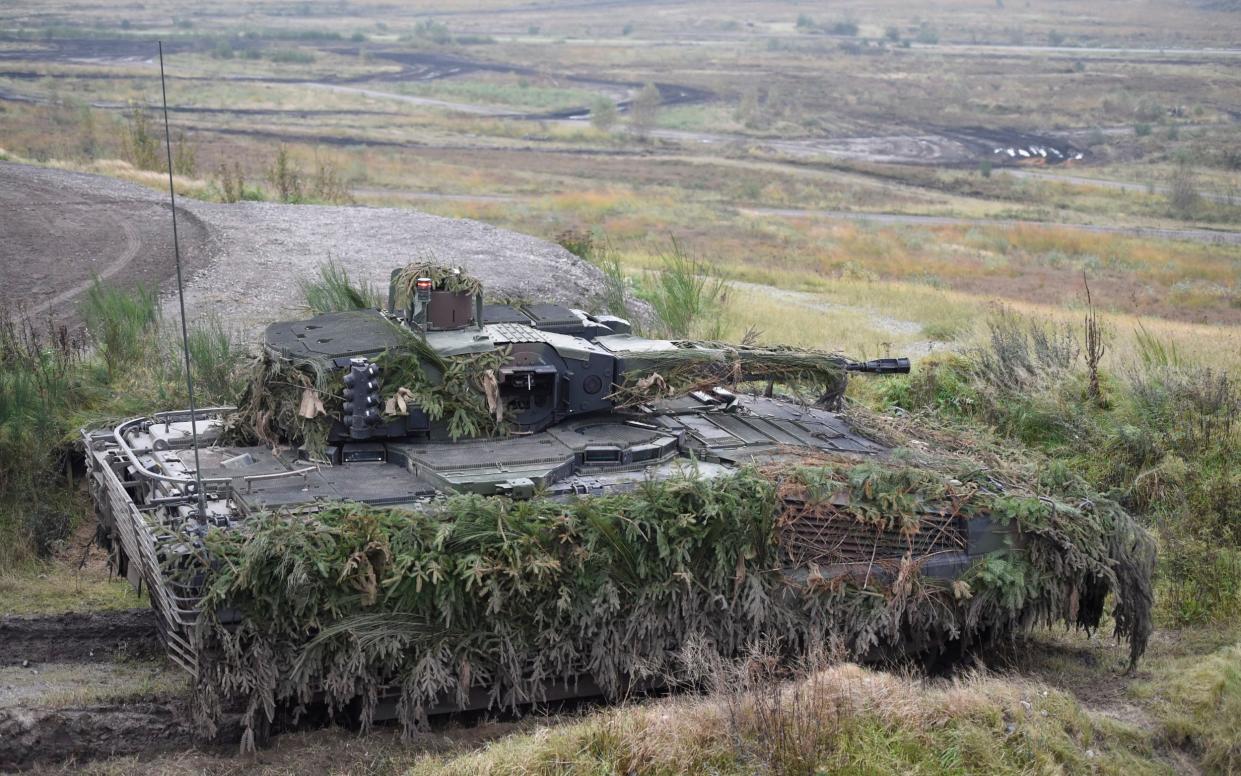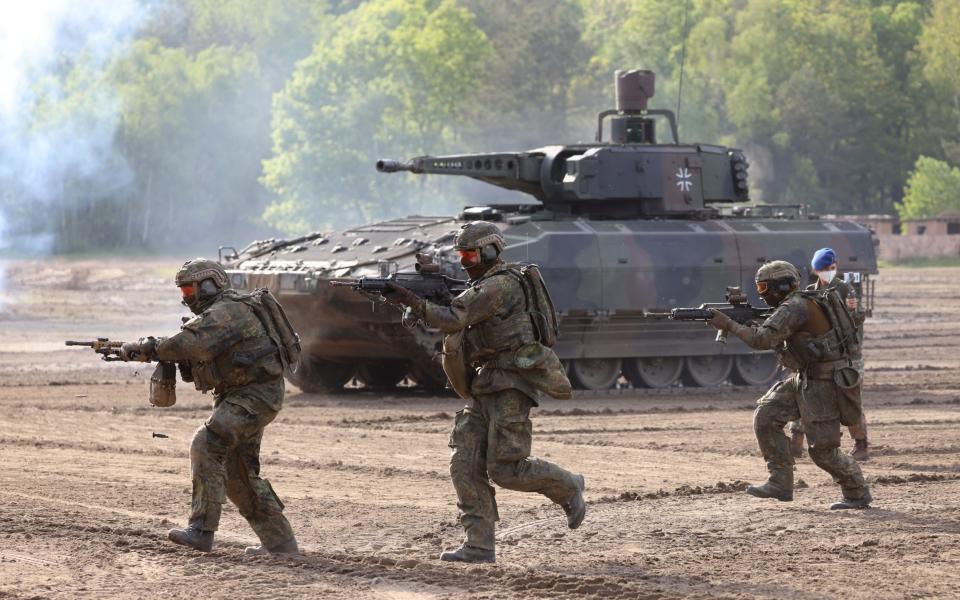Disaster as 18 of Germany’s new advanced tanks break down during training

Germany has said it will not be buying any new Puma tanks after 18 of the state-of-the-art vehicles broke down in a disastrous training exercise.
Troops have lost faith in the reliability of the Puma, commanders warned, as alarm bells rang over the chronically underfunded army’s ability to meet its Nato commitments.
Christine Lambrecht, the defence minister, said the failure of the tanks was a “bitter setback” and that soldiers "must be able to rely on weapon systems being robust and stable in combat".
No new Pumas - the most expensive infantry fighting vehicle in the world - will be bought until the reliability issues are overcome, she said, before telling Nato allies that Germany would still meet its commitments to the Alliance.
Relying on the Puma was like “playing the lottery”, Major Gen Ruprecht von Butler wrote in a furious letter to the defence ministry, according to Der Spiegel magazine.
The German army hailed the Puma as "the most modern light tank in the world" when it bought 350 of the vehicles from a German army consortium back in 2015.
But technical problems have plagued that vehicle - leading the German press to nickname it the Pannenpanzer, meaning breakdown tank.

The Puma tanks were supposed to be deployed to Lithuania as part of the Nato Response Force at the beginning of next month.
But repair work will take several months and the German troops will instead have to rely upon the Cold War-era Marder tank.
Olaf Scholz, the German chancellor, pledged to plough €100 billion (£87.2 billion) into Germany's threadbare armed forces immediately after Russia attacked Ukraine and has since said he wants them to become the best on the continent.
"The Puma is supposed to be one of our army’s main weapons systems. If it is not operational, then the army is not operational," said Johann Wadephul, defence spokesman for the Christian Democrats, Germany’s centre-Right opposition party.
Meanwhile, Volodymyr Zelensky urged north European leaders, including Rishi Sunak, to speed up deliveries of air defence systems to Ukraine in a speech via videolink.
Leaders of the UK-led Joint Expeditionary Force (JEF) nations were meeting in Riga, in Latvia, to discuss Ukraine's defence needs while seeking to accelerate their own co-operation.
“Russian aggression can and must fail,” the Ukrainian president said after Russian drone strikes left millions without heat and water. “The task now is to make sure it happens faster. I call upon you to do everything to accelerate the defeat of the occupiers."
The UK has announced a fresh supply of hundreds of thousands of rounds of artillery ammunition as part of its package of defensive aid for 2023, under a £250 million contract.
Mr Sunak urged the other JEF nations to sustain or boost their current offers and to provide Kyiv with more air defence systems, artillery and armoured vehicles.
He said there could be no peace talks until Russia withdraws from areas of Ukraine it has occupied.
“Until they have withdrawn from conquered territory, there can and should be no real negotiation,” said Mr Sunak.
"But what we can do is think about that time now, think about what we will do with regard to security assurances."

The Prime Minister said the Alliance must focus on "degrading Russia's capability to regroup and resupply", including by being "very strong about calling out" Iran for sending drones to Moscow.
He also travelled to Estonia, which shares a 182-mile border with Russia, where he met British troops stationed in the Baltic country as part of the UK’s Nato commitments.


